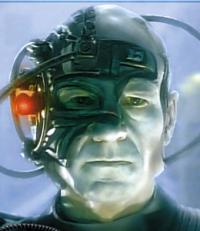Memory Manufacturers Merge to Save Selves
A chip industry veteran will now lead a new Taiwan-based, state-backed company that merges six memory chipmakers into one collective--the TMC.
While the $23.6 billion computer memory industry struggles to stay afloat, Taiwan's economic affairs ministry elected former United Microelectronics Corp. executive John Hsuan to head a new state-backed memory manufacturer, according to Bloomberg. The 57-year-old semiconductor expert will oversee Taiwan Memory Co., set to launch within six months and partly funded--but not owned--by the Taiwan government. This will be the biggest overhaul seen in the semiconductor industry since 1999.
Economics Affairs Minister Yiin Chii-ming said that the new company, comprising of Nanya Technology, Inotera Memories, Powerchip Semiconductor, Rexchip Electronics, ProMOS Technologies, and Winbond Electronics, will possibly merge with Japan's Elpida Memory Inc. or Micron Technology Inc., although talks with both companies are predicted to come to a close in three months. As it stands, one of the two will either merge into the collective, or collaborate with the new company separately.
“We will decide whether to join in the merger after studying the master plan carefully,” Elpida spokesman Michinari Tsurumaki said from Tokyo.
By creating Taiwan Memory Co., the Taiwanese government focuses on helping the smaller manufacturers of memory to better compete with Samsung Electronics Co despite current losses reported by Samsung and even Micron. And while John Hsuan's experience with DRAM is expected to keep him neutral while managing the new company, it's speculated that the conglomerate will see challenges ahead while managing different technologies from different sources.
“The formation of TMC will help to reform the DRAM industry and build our own intellectual property rights and raise the competitiveness of the industry in the global arena,” Yiin said. He also said that the government will seek private investors for the venture.
Although all six Taiwanese DRAM companies generated 23 percent of the global sales in Q4, their combined earnings were just shy of Samsung's overwhelming 25 percent in the same period. Nanya Technology, Inotera Memories, Powerchip Semiconductor, ProMOS Technologies, and Winbond Electronics also saw a combined loss of $2.7 billion during the first nine months of 2008. Overall, the industry suffered its biggest loss ever recorded: $12.5 billion during in 2007 and 2008.
Get Tom's Hardware's best news and in-depth reviews, straight to your inbox.
Will the formation of TMC reboot the DRAM market and even bring the industry back into the black? It will be interesting to see in a year's time, especially if TMC becomes Borg-like.

Kevin Parrish has over a decade of experience as a writer, editor, and product tester. His work focused on computer hardware, networking equipment, smartphones, tablets, gaming consoles, and other internet-connected devices. His work has appeared in Tom's Hardware, Tom's Guide, Maximum PC, Digital Trends, Android Authority, How-To Geek, Lifewire, and others.
-
jacobdrj AS long as there is international competition (and their own market is NOT the main consumer of their own DRAM, than I don't see a problem with this.Reply -
ravenware ReplyWhile the $23.6 billion computer memory industry struggles to stay afloat
k.
I don't think the RAM industry is going to leave us anytime soon (the larger companies anyway)
The demand for RAM supplies should increase if it hasn't already.
We are seeing more users installing larger quantities of ram. Quantities that would have been deemed useless a couple years ago, but with the increasing popularity of 64 bit operating systems and windows7 around the corner there will be a lot of RAM upgrades and purchases.
DD3 will quickly become the new standard as AMD and Intel have both chosen the technology for their new platforms. So, there will be an increased demand for ram chips for the ddr2 to ddr3 switch.
We are also seeing a lot more SSD devices hit the market too.
-
Darkk For the AMD platform it doesn't make much sense to pay more for DDR3 when the performance is almost the same as DDR2. Eventually over time DDR3 will be cheaper but for now the masses are buying up alot of DDR2 due to low cost.Reply
-
neiroatopelcc I kinda fail to see the point in these stupidly cheap prices for ddr2 if the companies are actually making a loss on them?Reply
Anyway, I'll be interesting to see the outcome of this merger. If micron would join in, I'd imagine the new company would be a serious contender on the marked. Those makes already in the collective focus on value memory, which is what samsung does too. Micron however has experience with performance chips, so if they'd lend a hand, this new company could compete with samsung in the value sector, and possibly outdo the rest in the performance segment (due to possible quantity). Just my hopes, but could be cool to have a serious player.
